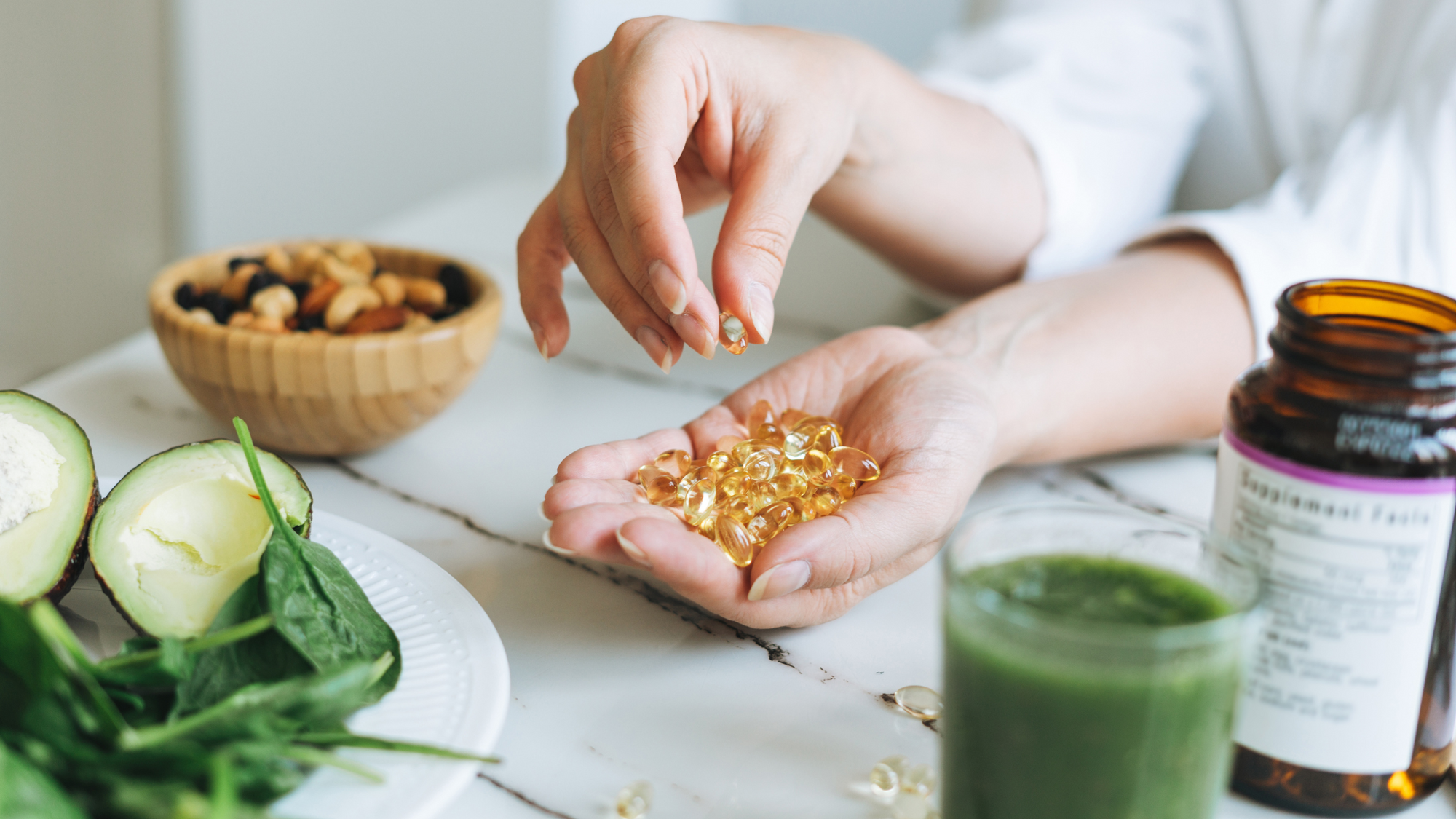
· By Sophie Strommen
Fat Soluble Vitamins And Why We Need Them
Of the 13 essential vitamins, 4 of these are fat soluble - these include vitamins A, D, E and K. Unlike water soluble vitamins, fat soluble vitamins need fats in order to be absorbed in the body, these are stored in the body and are generally found in fatty foods. Let’s have a closer look at the fat soluble vitamins!

Vitamin A
Vitamin A in its chemical form “retinol” is only found in animal foods, such as liver, eggs, cheese, oily fish, milk and yoghurt. Vitamin A can also be formed from Beta Carotene, which is found in yellow and red vegetables, such as carrots and bell peppers - so vegans can also get their vitamin A fix!
Vitamin A is a powerful antioxidant and is important for immune function, reproductive health, vision, and growth and development. Men need 700µg per day, whereas women need 600µg. High intakes of vitamin A can be harmful, especially in pregnancy as it can cause harm to the infant, it is therefore recommended to avoid skincare products that contain retinol and consuming liver or high dose vitamin A supplements during pregnancy.

Vitamin D
Vitamin D, also known as the sunshine vitamin, is a hormone that can be synthesised in the skin from sun exposure. Vitamin D3 can be found in some foods such as fatty fish, red meat, liver, eggs, dairy and fortified foods such as spreads and breakfast cereals. Vitamin D is also found in some plant foods such as mushrooms in the form of D2, however this form is not as effective as D3.
Vitamin D is essential in maintaining bone mineralisation by regulating calcium supply in the blood - a lack of vitamin D can result in rickets in children, and soft weak bones in adults. Vitamin D also has other functions in the body, such as maintaining normal immune function and regulating mood. Due to a lack of sunlight during wintertime, it is recommended to take a daily vitamin D supplement to avoid deficiency - the recommended daily intake is 5µg per day!

Vitamin E
Vitamin E is a group of fat soluble compounds that function as antioxidants in the body, which means they can help protect cells from free radical damage. Because of its antioxidant activity, it plays an important role in maintaining healthy immune function and protecting the body from various conditions and diseases such as cardiovascular disease and eye disorders. It also plays an important role in maintaining healthy skin and eyes.
Vitamin E is found in a variety of foods, such as plant oils, nuts, seeds, meats and cereals. Men need 4mg vitamin E per day, whereas women need 3mg.

Vitamin K
Vitamin K refers to a group of compounds that are important in normal clotting of blood, this is important as it can help prevent excessive bleeding and bruising when a blood vessel gets injured! It also works alongside vitamin D to help utilise calcium in bone formation, which prevents calcium from building up in arteries or soft tissue.
It is found in a range of foods, specifically vegetables such as spinach, cabbage, cauliflower, peas and cereals. Because it is found in so many foods, and because some bacteria in the intestine can synthesise it, deficiency is unlikely. The amount of vitamin K you need in a day will vary from person to person, but adults are generally recommended to have 1µg vitamin K per kg bodyweight per day - for instance, a 70kg person would need 70µg per day.

What Else Do We Need To Know?
Because fat soluble vitamins are stored in the body, there is also a risk of toxicity. It is therefore not recommended to supplement unless needed, e.g. in the event of a deficiency. However, it also means that we have stores in our bodies that can be used if we go a period of time where we consume less foods rich in these vitamins!
Fat soluble vitamins are either found in fatty foods, or need fats in order to be absorbed effectively in our bodies, it is therefore important to include healthy fats in our diets - as a low fat diet can lead to a low fat soluble vitamin diet! If you have low levels of these vits, it may be worth topping up with a supplement!